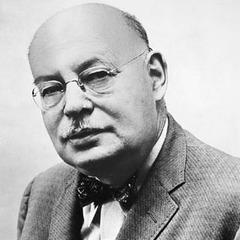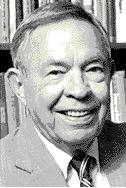Julian Jaynes Quotes
The very reason we need logic at all is because most reasoning is not conscious at all.
Julian Jaynes (2000). “The Origin of Consciousness in the Breakdown of the Bicameral Mind”, p.51, Houghton Mifflin Harcourt
Julian Jaynes (2000). “The Origin of Consciousness in the Breakdown of the Bicameral Mind”, p.75, Houghton Mifflin Harcourt
Julian Jaynes (2000). “The Origin of Consciousness in the Breakdown of the Bicameral Mind”, p.192, Houghton Mifflin Harcourt
Julian Jaynes (1990). “The origin of consciousness in the breakdown of the bicameral mind”, Houghton Mifflin Harcourt (HMH)
Julian Jaynes (2000). “The Origin of Consciousness in the Breakdown of the Bicameral Mind”, p.323, Houghton Mifflin Harcourt
Indeed, it is sometimes almost as if the problem had to be forgotten to be solved.
Julian Jaynes (2000). “The Origin of Consciousness in the Breakdown of the Bicameral Mind”, p.54, Houghton Mifflin Harcourt
"The Origin of Consciousness in the Breakdown of the Bicameral Mind" by Julian Jaynes, (Book I, Chapter 3, p. 79), 1976.
We can only know in the nervous system what we have known in behavior first.
Julian Jaynes (2000). “The Origin of Consciousness in the Breakdown of the Bicameral Mind”, p.28, Houghton Mifflin Harcourt
Julian Jaynes (2000). “The Origin of Consciousness in the Breakdown of the Bicameral Mind”, p.312, Houghton Mifflin Harcourt
I shall state my thesis plain. The first poets were gods. Poetry began with the bicameral mind.
Julian Jaynes (2000). “The Origin of Consciousness in the Breakdown of the Bicameral Mind”, p.371, Houghton Mifflin Harcourt
Julian Jaynes (2000). “The Origin of Consciousness in the Breakdown of the Bicameral Mind”, p.33, Houghton Mifflin Harcourt
One does one's thinking before one knows what one is to think about.
Julian Jaynes (2000). “The Origin of Consciousness in the Breakdown of the Bicameral Mind”, p.49, Houghton Mifflin Harcourt
Julian Jaynes (2000). “The Origin of Consciousness in the Breakdown of the Bicameral Mind”, p.76, Houghton Mifflin Harcourt
Julian Jaynes (2000). “The Origin of Consciousness in the Breakdown of the Bicameral Mind”, p.284, Houghton Mifflin Harcourt
No one is moral among the god-controlled puppets of the _Iliad_. Good and evil do not exist.
Julian Jaynes (2000). “The Origin of Consciousness in the Breakdown of the Bicameral Mind”, p.285, Houghton Mifflin Harcourt
Julian Jaynes (2000). “The Origin of Consciousness in the Breakdown of the Bicameral Mind”, p.291, Houghton Mifflin Harcourt
Julian Jaynes (2000). “The Origin of Consciousness in the Breakdown of the Bicameral Mind”, p.153, Houghton Mifflin Harcourt
Julian Jaynes (2000). “The Origin of Consciousness in the Breakdown of the Bicameral Mind”, p.65, Houghton Mifflin Harcourt
Julian Jaynes (2000). “The Origin of Consciousness in the Breakdown of the Bicameral Mind”, p.223, Houghton Mifflin Harcourt
Julian Jaynes (2000). “The Origin of Consciousness in the Breakdown of the Bicameral Mind”, p.76, Houghton Mifflin Harcourt







